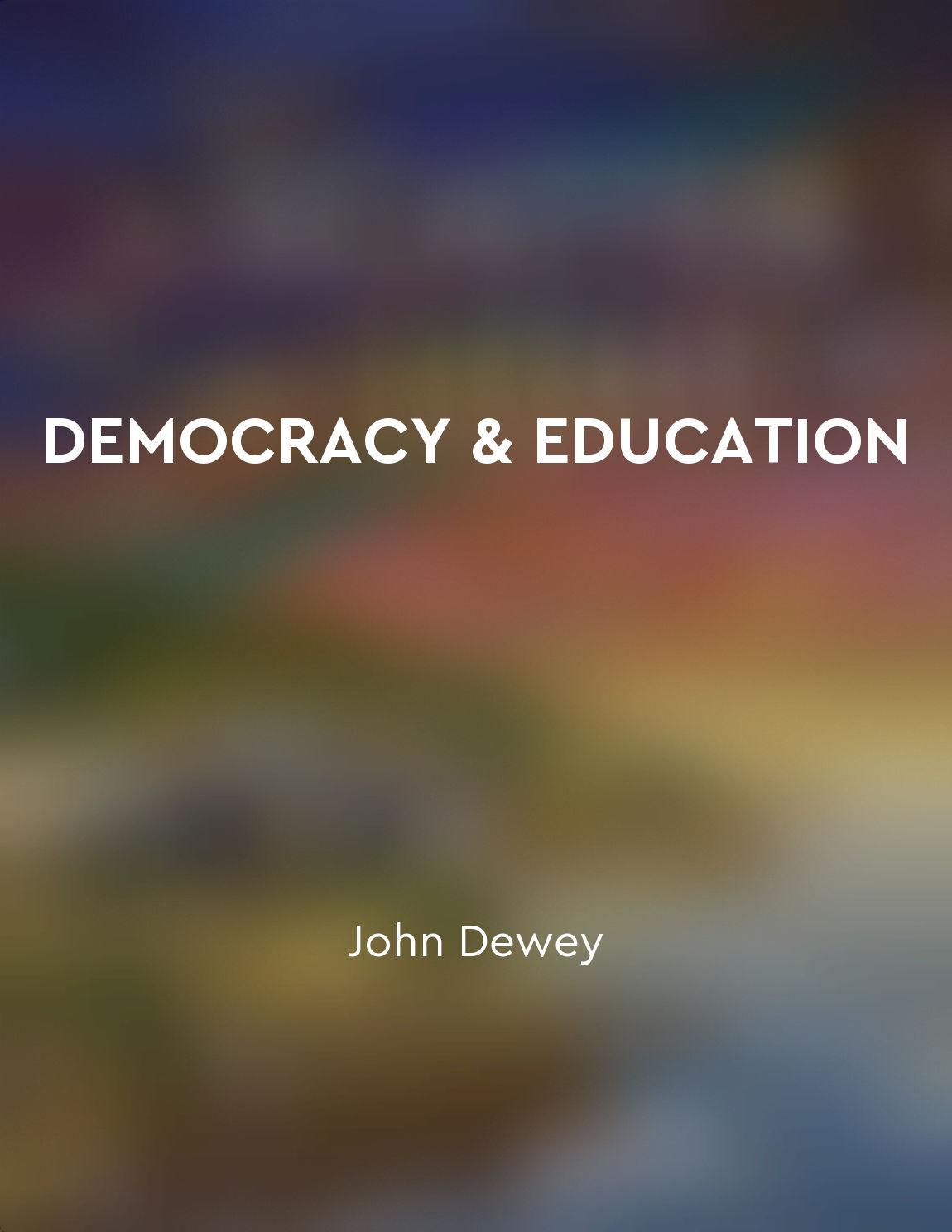Citizens must actively participate in politics from "summary" of Aristotle's Politics by Aristotle
The concept of citizens actively participating in politics is essential for the proper functioning of a state. Aristotle argues that a citizen is not merely a resident of a city, but an active participant in its governance. This participation is not limited to voting in elections, but also involves engaging in public debates, serving in government offices, and contributing to the common good. Aristotle believes that citizens have a moral obligation to be involved in politics because it is through active participation that they can ensure the well-being of the state. He argues that those who do not participate in politics are like "slaves" or "beasts," as they are not fulfilling their potential as rational beings capable of self-governance. Furthermore, Aristotle asserts that the best form of government is one in which citizens have a direct role in decision-making. He criticizes oligarchies and tyrannies, where power is concentrated in the hands of a few, as they do not allow for the full participation of citizens. In contrast, a democracy, where all citizens have a say in government, is the most just form of government according to Aristotle. Aristotle acknowledges that not all citizens may have the time or inclination to participate in politics, but he argues that those who do not are neglecting their duty to the state. He emphasizes the importance of education in cultivating virtuous citizens who are capable of engaging in politics responsibly.- Aristotle's Politics underscores the significance of citizens actively participating in politics for the stability and prosperity of a state. By fulfilling their civic duties and being engaged in governance, citizens contribute to the common good and ensure that the state functions in a just and ethical manner.
Similar Posts
We must reimagine and reinvent democracy for the 21st century
The urgent task before us is to reconceptualize and transform our democratic experiment in order to cultivate a more robust and...
The benefits of a system of checks and balances
The necessity of a system of checks and balances in government cannot be overstated. Without such a system in place, the tenden...
Concept of natural law
The concept of natural law is a fundamental principle in political philosophy, providing a basis for understanding and evaluati...
Corinthian War between Sparta and Athens
The conflict between Sparta and Athens, known as the Corinthian War, erupted due to the shifting power dynamics among the Greek...

Democracy demands continuous improvement
Democracy is not a fixed system, but rather a dynamic process that requires ongoing development and refinement. The idea that d...
The social contract requires ongoing commitment
The social contract is a fundamental agreement that binds individuals to the collective will of the community. It is a pact tha...

